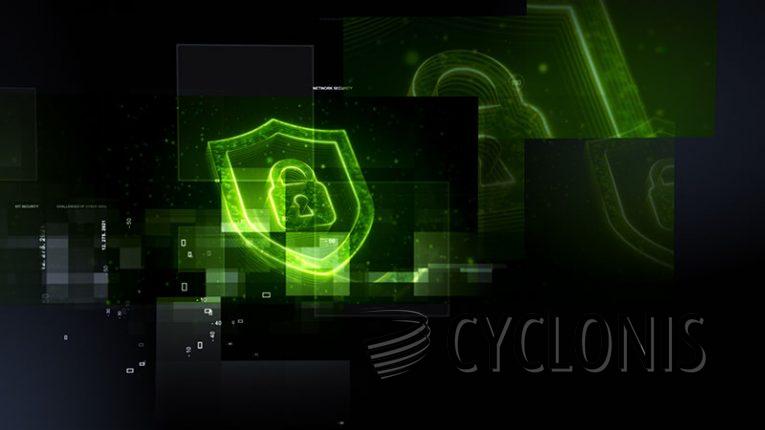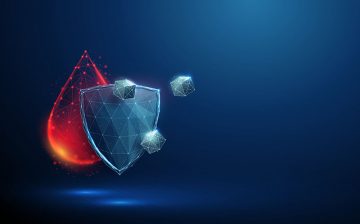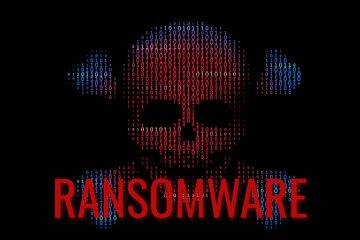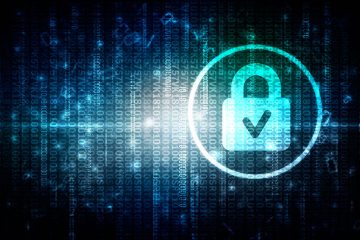BlackZluk Ransomware: What You Need to Know to Stay Safe

Ransomware is one of the most significant threats in the digital landscape, and another strain, BlackZluk Ransomware, is adding to the list. Like other ransomware, BlackZluk is designed to encrypt files on a victim's system, rendering them inaccessible, and demand payment in exchange for a decryption key. As cybercriminals continue exploiting vulnerabilities in corporate networks, individuals and businesses must stay informed and prepared for these emerging threats.
Here, we will explore what BlackZluk Ransomware is, how ransomware typically works, and how victims are targeted. Most importantly, we will discuss strategies to avoid falling prey to these dangerous attacks.
Table of Contents
What is BlackZluk Ransomware?
BlackZluk Ransomware is a malicious software that encrypts a victim's files and appends them with the ".blackZluk" extension. For example, a file originally named "document.pdf" becomes "document.pdf.blackZluk" after encryption. Following the encryption process, a ransom note titled "#RECOVERY#.txt" is generated and placed on the infected system, informing the victim that their files are now inaccessible.
The message within the ransom note is alarming: it states that the victim's network has been compromised, sensitive data has been stolen, and the files will remain encrypted unless the victim pays a ransom. The note also warns against attempting any form of recovery through antivirus software or third-party help, suggesting that such actions could lead to permanent data loss.
Check out the ransom note below:
Hello my dear friend (Do not scan the files with antivirus in any case. In case of data loss, the consequences are yours)
Your data is encrypted
Unfortunately for you, a major IT security weakness left you open to attack, your files have been encrypted
The only method of recovering files is to purchase decrypt tool and unique key for you.
Download the (Session) messenger (hxxps://getsession.org) in messenger: 0569a7c0949434c9c4464cf2423f66d046e3e08654e4164404b1dc23783096d313 You have to add this Id and we will complete our converstion
In case of no answer in 24 hours write us to this backup e-mail: blackpro.team24@onionmail.org
Our online operator is available in the messenger Telegram: @Files_decrypt or hxxps://t.me/Files_decrypt
Check your e-mail Spam or Junk folder if you don't get answer more than 6 hours.
Contact us soon, because those who don't have their data leaked in our press release blog and the price they'll have to pay will go up significantly.
Attention
Do not rename encrypted files.
Do not try to decrypt your data using third party software - it may cause permanent data loss.
We are always ready to cooperate and find the best way to solve your problem.
The faster you write - the more favorable conditions will be for you.
Our company values its reputation. We give all guarantees of your files decryption.
What are your recommendations?
Never change the name of the files, if you want to manipulate the files, be sure to back them up. If there are any problems with the files, we are not responsible for them.
Never work with intermediary companies because they charge you more money.Don't be afraid of us, just email us.
Sensitive data on your system was DOWNLOADED.
If you DON'T WANT your sensitive data to be PUBLISHED you have to act quickly.
Data includes:
Employees personal data, CVs, DL, SSN.
Complete network map including credentials for local and remote services.
Private financial information including: clients data, bills, budgets, annual reports, bank statements.
Manufacturing documents including: datagrams, schemas, drawings in solidworks format
And more…
What are the dangers of leaking your company's data.
First of all, you will receive fines from the government such as the GDRP and many others, you can be sued by customers of your firm for leaking information that was confidential. Your leaked data will be used by all the hackers on the planet for various unpleasant things. For example, social engineering, your employees' personal data can be used to re-infiltrate your company. Bank details and passports can be used to create bank accounts and online wallets through which criminal money will be laundered. On another vacation trip, you will have to explain to the FBI where you got millions of dollars worth of stolen cryptocurrency transferred through your accounts on cryptocurrency exchanges. Your personal information could be used to make loans or buy appliances. You would later have to prove in court that it wasn't you who took out the loan and pay off someone else's loan. Your competitors may use the stolen information to steal technology or to improve their processes, your working methods, suppliers, investors, sponsors, employees, it will all be in the public domain. You won't be happy if your competitors lure your employees to other firms offering better wages, will you? Your competitors will use your information against you. For example, look for tax violations in the financial documents or any other violations, so you have to close your firm. According to statistics, two thirds of small and medium-sized companies close within half a year after a data breach. You will have to find and fix the vulnerabilities in your network, work with the customers affected by data leaks. All of these are very costly procedures that can exceed the cost of a ransomware buyout by a factor of hundreds. It's much easier, cheaper and faster to pay us the ransom. Well and most importantly, you will suffer a reputational loss, you have been building your company for many years, and now your reputation will be destroyed.
Do not go to the police or FBI for help and do not tell anyone that we attacked you.
They won't help and will only make your situation worse. In 7 years not a single member of our group has been caught by the police, we are top-notch hackers and never leave a trace of crime. The police will try to stop you from paying the ransom in any way they can. The first thing they will tell you is that there is no guarantee to decrypt your files and delete the stolen files, this is not true, we can do a test decryption before payment and your data will be guaranteed to be deleted because it is a matter of our reputation, we make hundreds of millions of dollars and we are not going to lose income because of your files. It is very beneficial for the police and the FBI to let everyone on the planet know about the leak of your data, because then your state will receive fines under GDPR and other similar laws. The fines will go to fund the police and FBI. The police and FBI will not be able to stop lawsuits from your customers for leaking personal and private information. The police and FBI will not protect you from repeat attacks. Paying us a ransom is much cheaper and more profitable than paying fines and legal fees.
If you do not pay the ransom, we will attack your company again in the future.
Start messaging with your unique ID an incident file #RECOVERY#.txt
your unique ID
The Goals of BlackZluk: Extortion and Data Theft
Like other ransomware programs, BlackZluk aims to extort money from its victims. By locking the victim out of their files, attackers hope that the threat of losing access to valuable data will compel businesses or individuals to pay up. Additionally, BlackZluk's creators use a double-extortion tactic: not only do they encrypt the files, but they also steal sensitive data. This stolen data might include corporate secrets, financial records, or personal information about employees and customers. If the ransom is not paid, the attackers threaten to leak this data publicly, increasing the pressure on victims to comply with their demands.
This combination of file encryption and data theft makes BlackZluk Ransomware particularly dangerous. Even if an organization has backups of its data, the fear of leaked sensitive information can still push it to consider paying the ransom.
How Ransomware Works
Ransomware programs generally follow a similar pattern: they infiltrate a system, encrypt files, and then demand payment in exchange for their recovery. The encryption process used by ransomware can vary, with some strains using symmetric cryptography (the same key for encryption and decryption) and others employing asymmetric cryptography (a pair of keys, one for encryption and another for decryption). Regardless of the method, recovering the files without the attacker's key is often impossible once the files are encrypted.
While some victims might feel tempted to pay the ransom, cybersecurity experts strongly advise against this. There is no guarantee that the attackers will provide the decryption key after receiving payment, and by paying, victims are fueling the cybercriminals' operations, enabling future attacks. Additionally, paying does not prevent attackers from leaking the stolen data.
BlackZluk’s Methods of Attack
Like most malicious software, BlackZluk Ransomware is typically distributed through phishing emails, malicious attachments, and compromised websites. Attackers often use social engineering tactics to trick victims into downloading and opening an infected file. Once the file is executed, the ransomware encrypts the victim's files and displays the ransom note.
In many cases, ransomware spreads through network vulnerabilities or weakly secured systems. Malicious software can propagate within a network, infecting additional devices, which makes ransomware attacks especially damaging for businesses with interconnected systems.
Protecting Yourself from BlackZluk Ransomware
Given the severity of ransomware attacks, prevention is key. You can take several steps to protect yourself from BlackZluk Ransomware and similar threats.
- Regular Backups: The best defense against ransomware is maintaining regular backups of all critical data. Ensure that backups are stored in multiple locations, including offline or in remote servers, so they are not accessible to attackers.
- Keep Software Updated: Keeping all software, especially operating systems and security programs, updated is crucial. Many ransomware attacks exploit known vulnerabilities in outdated software, so staying up to date with patches and updates can help prevent infection.
- Be Cautious with Emails and Downloads: Phishing emails often deliver ransomware. Avoid opening attachments or clicking links in unfamiliar emails, especially from unknown senders. Only download files and software from trusted and verified sources.
Removing BlackZluk Ransomware
If a system becomes infected with BlackZluk rRansomware, removing the malware as quickly as possible is essential to prevent further file encryption. However, the removal of the ransomware will not decrypt the files that have already been affected. The only way to restore encrypted files is by using a backup, assuming one is available. This further underscores the importance of regular and secure backups.
When removing ransomware, it's important to use professional antivirus or anti-malware software and to consult cybersecurity professionals if necessary. Trying to decrypt files manually or using third-party decryption tools may cause additional damage or permanent data loss.
Conclusion: Prevention is the Best Cure
The rise of BlackZluk Ransomware is a reminder of the ongoing dangers posed by cybercriminals. Ransomware programs have evolved to lock users out of their data and steal and threaten to release sensitive information. BlackZluk Ransomware, with its double-extortion tactics, emphasizes the need for vigilance, proper cybersecurity practices, and, most importantly, the importance of backing up critical data.
If you regularly update your software, are cautious with email attachments, and maintain secure backups, you can protect yourself from the devastating effects of ransomware. While ransomware removal may stop further damage, prevention is the most effective way to ensure you don't become the next victim of an attack like BlackZluk Ransomware.









